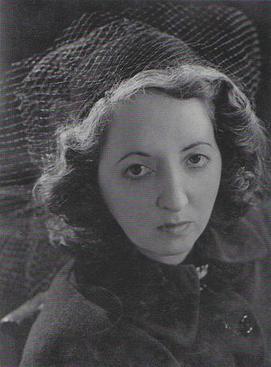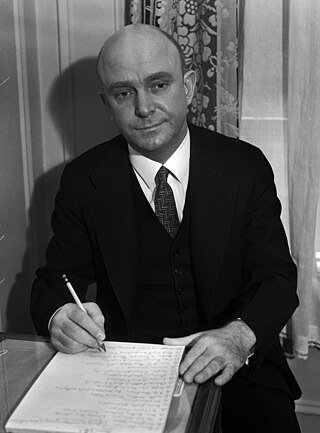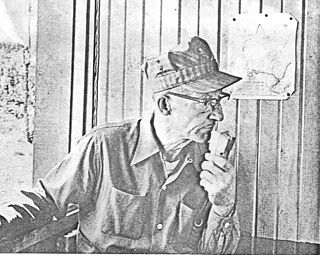
Q is a fictional character, as well as the name of a race, in Star Trek, appearing in the Next Generation, Deep Space Nine, Voyager, Lower Decks, and Picard series and in related media. The most familiar Q is portrayed by John de Lancie. He is an extra-dimensional being of unknown origin who possesses immeasurable power over time, space, the laws of physics, and reality itself, being capable of altering it to his whim. Despite his vast knowledge and experience spanning untold eons, he is not above practical jokes for his personal amusement, for a Machiavellian or manipulative purpose, or to prove a point. He is said to be almost completely omnipotent and he is continually evasive regarding his true motivations.

Trigun is a Japanese manga series written and illustrated by Yasuhiro Nightow. It was first serialized in Tokuma Shoten's shōnen manga magazine Monthly Shōnen Captain from March 1995 to December 1996, until the magazine ceased its publication; its chapters were collected in three tankōbon volumes. The series continued its publication in Shōnen Gahosha's seinen manga magazine Young King OURs, under the title Trigun Maximum, from October 1997 to March 2007. Shōnen Gahosha republished the Trigun chapters in two volumes, and collected the Trigun Maximum chapters in 14 volumes.

Fortune telling is the unproven spiritual practice of predicting information about a person's life. The scope of fortune telling is in principle identical with the practice of divination. The difference is that divination is the term used for predictions considered part of a religious ritual, invoking deities or spirits, while the term fortune telling implies a less serious or formal setting, even one of popular culture, where belief in occult workings behind the prediction is less prominent than the concept of suggestion, spiritual or practical advisory or affirmation.

Ceremonial magic encompasses a wide variety of rituals of magic. The works included are characterized by ceremony and numerous requisite accessories to aid the practitioner. It can be seen as an extension of ritual magic, and in most cases synonymous with it. Popularized by the Hermetic Order of the Golden Dawn, it draws on such schools of philosophical and occult thought as Hermetic Qabalah, Enochian magic, Thelema, and the magic of various grimoires. Ceremonial magic is part of Hermeticism and Western esotericism.

Oliver Napoleon Hill was an American self-help author. He is best known for his book Think and Grow Rich (1937), which is among the best-selling self-help books of all time. Hill's works insisted that fervid expectations are essential to improving one's life. Most of his books were promoted as expounding principles to achieve "success".

The Man Who Folded Himself is a 1973 science fiction novel by American writer David Gerrold. It was nominated for the Nebula Award for Best Novel in 1974 and the Hugo Award for Best Novel in 1974. The book explores the psychological, physical, and personal challenges that manifest when time travel is possible for a single individual at the touch of a button.

The Salt march, also known as the Salt Satyagraha, Dandi March, and the Dandi Satyagraha, was an act of nonviolent civil disobedience in colonial India, led by Mahatma Gandhi. The 24-day march lasted from 12 March 1930 to 5 April 1930 as a direct action campaign of tax resistance and nonviolent protest against the British salt monopoly. Another reason for this march was that the Civil Disobedience Movement needed a strong inauguration that would inspire more people to follow Gandhi's example. Gandhi started this march with 78 of his trusted volunteers. The march spanned 387 kilometres (240 mi), from Sabarmati Ashram to Dandi, which was called Navsari at that time. Growing numbers of Indians joined them along the way. When Gandhi broke the British Raj salt laws at 8:30 am on 6 April 1930, it sparked large-scale acts of civil disobedience against the salt laws by millions of Indians.

Olivia Mary Manning was a British novelist, poet, writer, and reviewer. Her fiction and non-fiction, frequently detailing journeys and personal odysseys, were principally set in the United Kingdom, Europe, and the Middle East. She often wrote from her personal experience, though her books also demonstrate strengths in imaginative writing. Her books are widely admired for her artistic eye and vivid descriptions of place.

Vash the Stampede is the protagonist of Trigun, a manga series created by Yasuhiro Nightow in 1995. Set on the planet No Man's Land, Vash is the most feared outlaw who has earned a bounty of $$60 billion on his head and the nickname "The Humanoid Typhoon" (人間台風) after accidentally destroying a city with his supernatural powers. He is a skilled gunman who battles bounty hunters and assassins working for his twin brother, Millions Knives. Despite his reputation, Vash displays a kindhearted personality by befriending citizens and refusing to murder his enemies.

Nicholas D. Wolfwood, also known as Nicholas the Punisher, is a major character in the Trigun manga series created by Yasuhiro Nightow, as well as its anime adaptation. He is a priest who wields a large cross-shaped gun named the Punisher, which he and his former colleagues use either in saving people or for complete destruction. After showing potential in the orphanage in which he was raised, Chapel trained and modified him, giving him enhanced abilities and the ability to regenerate from heavy injuries using special vials. He was given a special large cross-shaped gun called the Punisher, which contains two machine guns and a rocket launcher. Wolfwood is found nearly dead in the desert by protagonist Vash the Stampede. They become recurring allies despite acting on different morals when fighting.

Gandhism is a body of ideas that describes the inspiration, vision, and the life work of Mohandas K. Gandhi. It is particularly associated with his contributions to the idea of nonviolent resistance, sometimes also called civil resistance.

Philosophical Fragments is a Christian philosophical work written by Danish philosopher Søren Kierkegaard in 1844. It was the second of three works written under the pseudonym Johannes Climacus; the other two were De omnibus dubitandum est in 1841 and Concluding Unscientific Postscript to Philosophical Fragments in 1846.

Betrachtung is a collection of eighteen short stories by Franz Kafka written between 1904 and 1912. It was Kafka's first published book, printed at the end of 1912 in the Rowohlt Verlag on an initiative by Kurt Wolff.

Dr. Orison Swett Marden (1848–1924) was an American inspirational author who wrote about achieving success in life and founded SUCCESS magazine in 1897. His writings discuss common-sense principles and virtues that make for a well-rounded, successful life. Many of his ideas are based on New Thought philosophy.

Vash Young was an American author of motivational and self-improvement books with a popular following during the Great Depression. His writings, especially his last book Fortunes for All reveal much of his early life.

Annabel: A Novel for Young Folk is a 1906 juvenile novel written by L. Frank Baum, the author famous for his series of books on the Land of Oz. The book was issued under the pen name "Suzanne Metcalf," one of Baum's various pseudonyms. Annabel was one of Baum's first efforts to write a novel for adolescent girls – who soon became one of his most important audiences.

Warren Elmer "Tweard" Blackhurst (1904–1970) was an author and a lifelong resident of the Cass community who centered on the culture of eastern West Virginia where the higher elevations supported northern pine forests. "Riders of the Flood" which is arguably the most well-known of Blackhurst's books, for it centers on the world of the late 19th to early 20th-century logging industry in eastern West Virginia through the Greenbrier River and its tributaries.
A self-made man, is a person whose success is of their own making.

Transmission is a novel written by British-Indian author Hari Kunzru and published in 2004. It primarily follows the narrative of a naïve Indian programmer, Arjun Mehta, who emigrates to the United States in hopes of making his fortune. When he is laid off by his virus-testing company, he sends out e-mails containing a malignant computer virus in a bid to keep his job, unintentionally causing global havoc. Parallel to Arjun's story is that of Guy Swift, the seemingly well-to-do English CEO of an advertising company, and his struggle to keep his business going as the virus spreads.

















